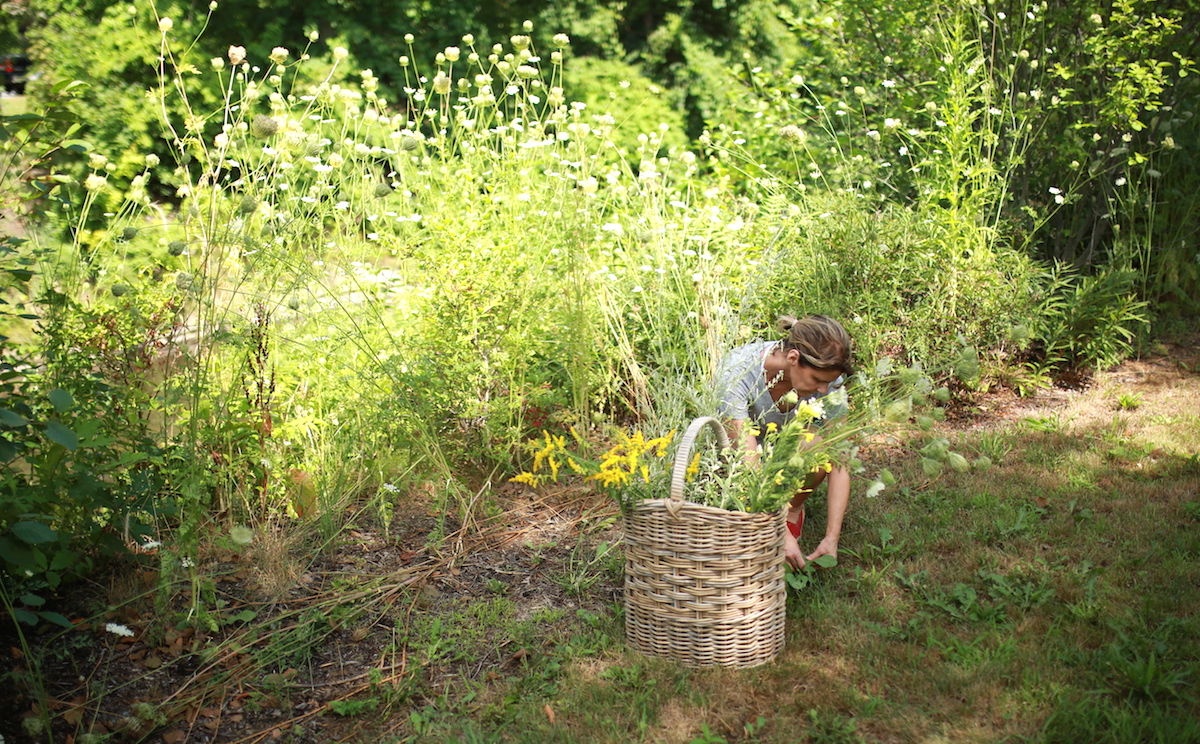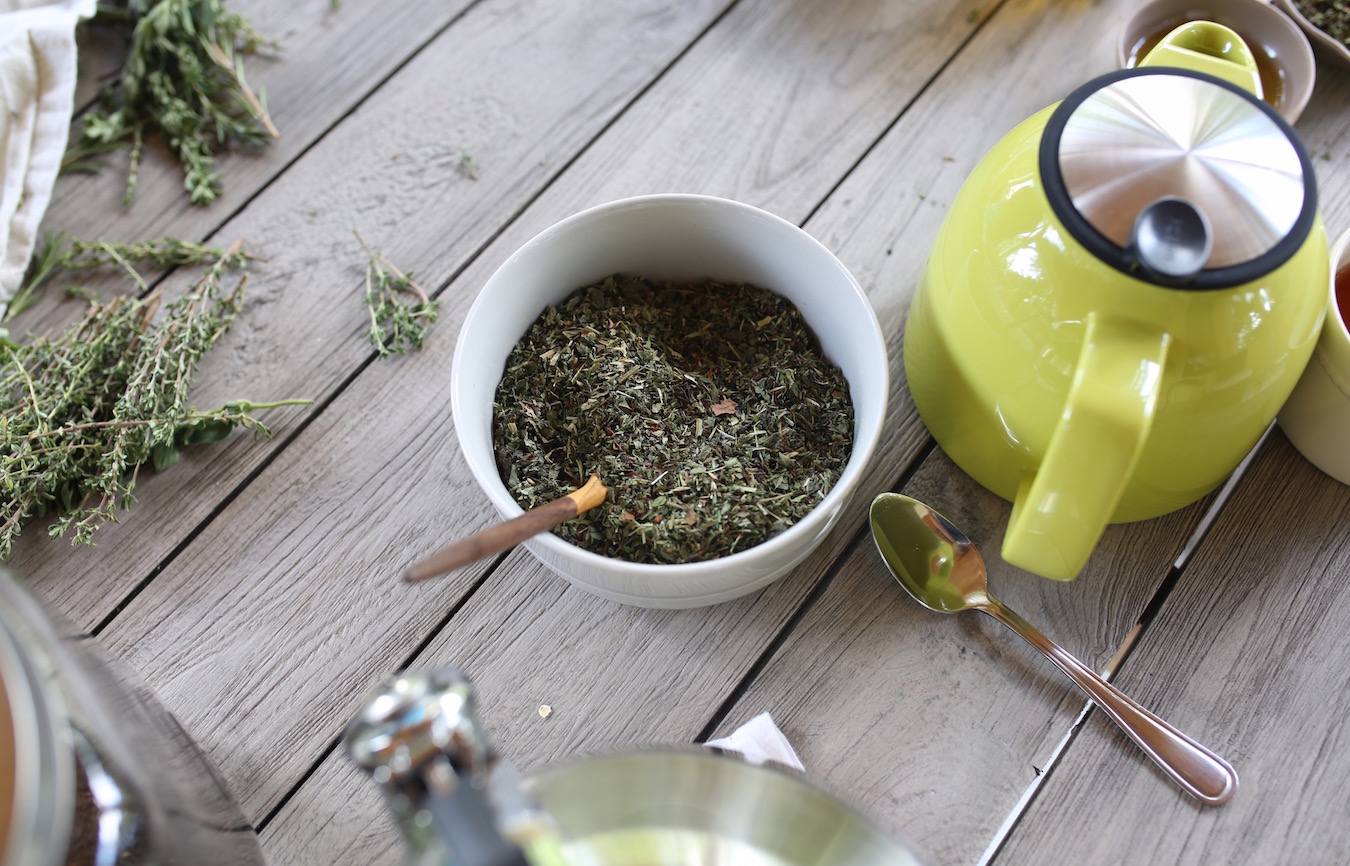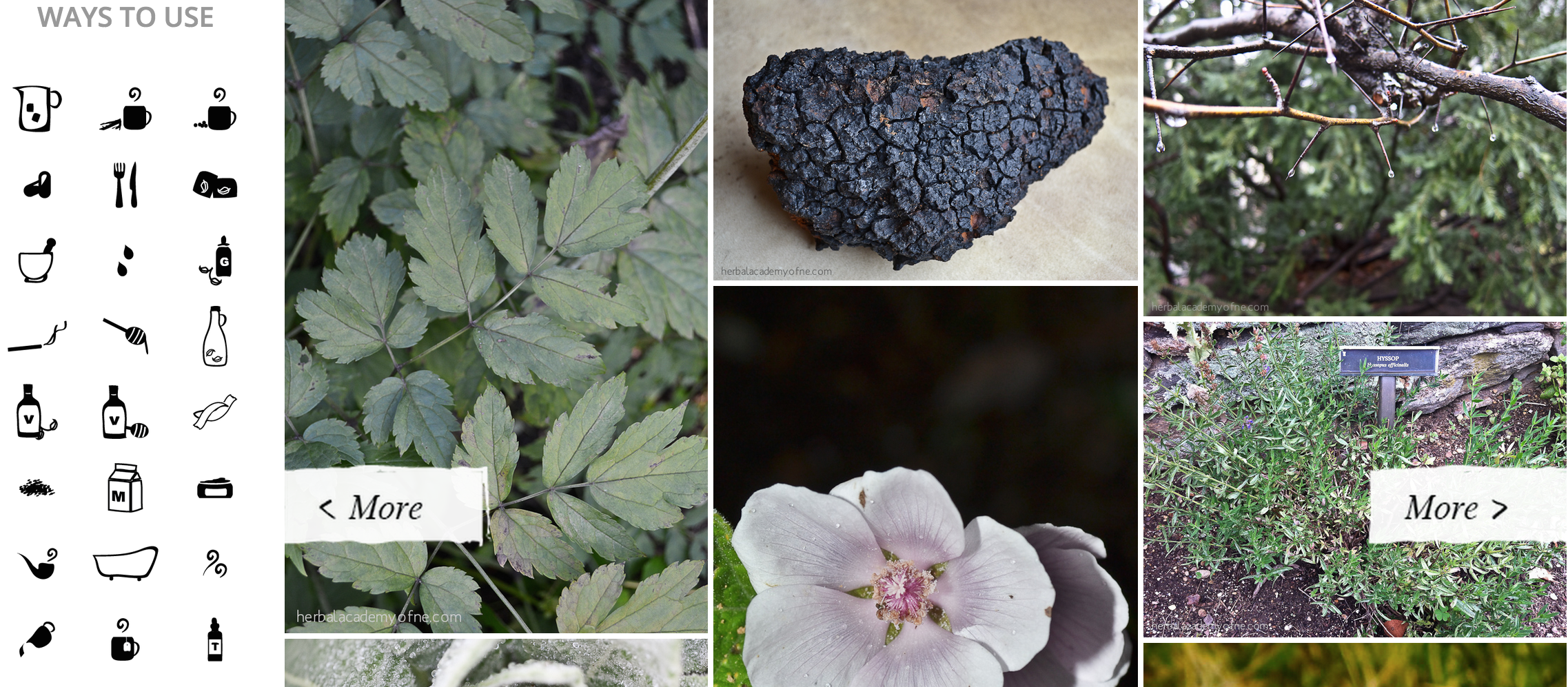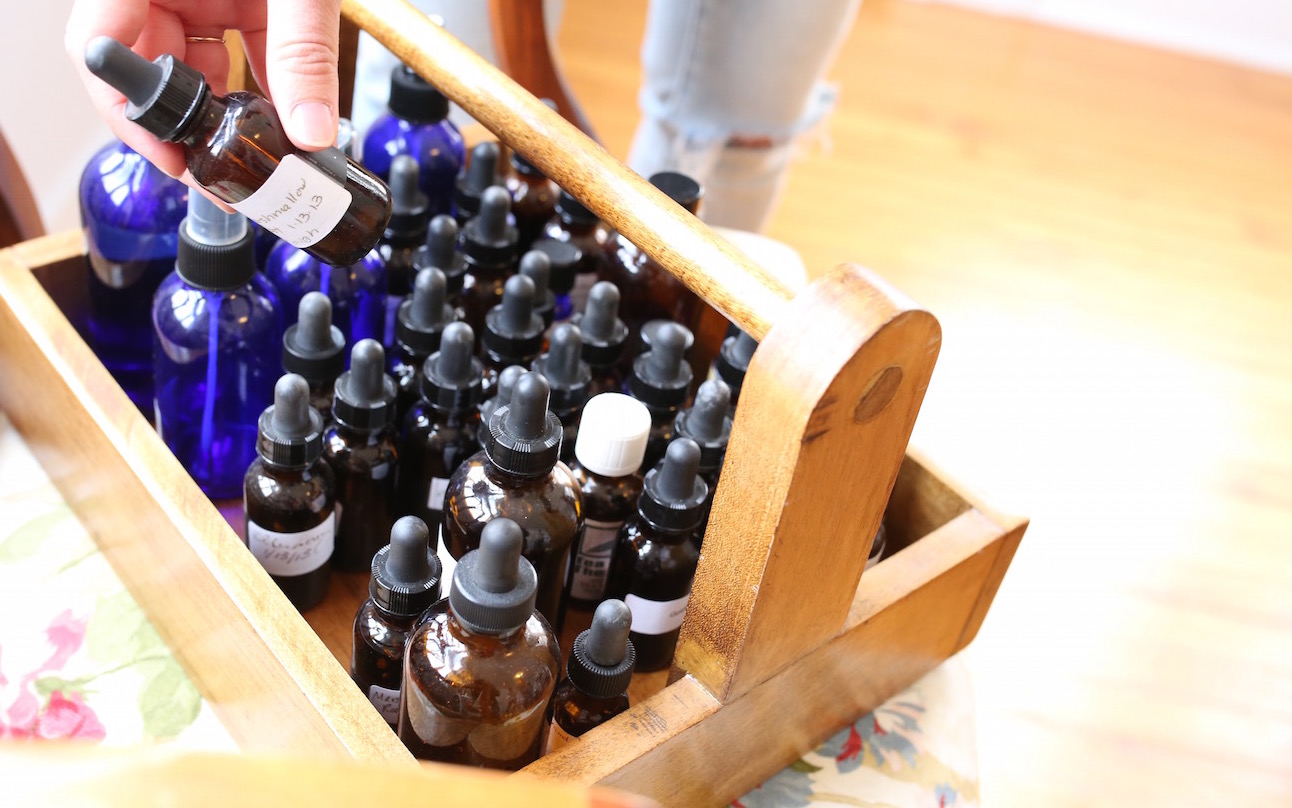
How to Begin your Herbalist Training
You want to become an herbalist, but you’re not sure where to begin. That’s natural, because although an herbalist is someone who works with and studies herbs, the details of how and where an herbalist acquires their herbalist training depends on the interests and talents of the individual. Most often, the job people have in mind when they say they want to become an herbalist has something to do with working one-on-one with other people, helping them increase their knowledge of how plants are beneficial for health. Herbalists who work directly with people in this type of role may be open to working with everyone, or they may prefer working with a specific group such as women or an underserved local community.
But herbalists also work with plants, and sometimes they prefer herbs to be the main focus of their work. Herbalists can be gardeners and farmers, and sell their herbs fresh or dried. They might focus on selling seeds and seedlings for others to grow. Or, they might be the crafty sort, who enjoy creating new recipes and selling their herbal products – extracts, salves, or even beauty products! While the industry has changed in recent years and herbalists now need to follow strict regulations if they want to sell their wares, it can still be done and many inspired herbalists find that this is their true calling.

What most of these herbalists have in common is their passion for herbalism as public profession. If herbalism seems like more of a private affair to you, though, there are still plenty of options. Herbalists can be writers, teachers, and artists, or they can be herbalists simply for themselves and their friends and family. If you are still trying to decide what type of herbalist you want to be, you might want to learn more about the many Herbalist Job Opportunities.
Regardless of what type of herbalist you want to become, you will still need an herbal education and some training to get you where you want to be.
Your Herbal Education: Where to Begin Your Herbalist Training
The definition of herbalist is pretty inclusive, and there are almost as many different ways to become an herbalist as there are to be an herbalist. It really depends on where you want to go with your path. This becomes very evident when you compare what might work for a family herbalist with what might be needed to become a clinical herbalist.
The herbalist training you might consider when becoming a family herbalist can be more informal and even structured around your family’s needs as they arise, while becoming the type of herbalist who works side-by-side with medical professionals needs an entirely different approach. Often, clinical herbalists will find that a good working knowledge of anatomy and physiology is important, as is feeling comfortable with the more scientific side of herbs – the chemical make-up of plants, botanical nomenclature, and being able to read formal journals and studies.
But I Want to Become a Certified Herbalist
Some budding herbalists are interested in becoming a “Certified Herbalist.” It’s important to remember, though, that in the U.S. there’s actually no such thing! Herbal schools can offer a “certificate of completion” indicating that you have successfully completed their course of studies, but there are no certifying bodies or accreditations for herbalists or herbal schools in the United States at this time. As herbalism is not officially regulated by any set of standards, it’s up to you to decide what type of school appeals to you, and to make your choices based on what and how you want to learn. Once you’ve narrowed things down a bit using the information below, be sure to spend some time getting to know your potential choices and their offerings so you can pick one that will be the perfect fit for you.

Online Herbal Schools
Online herbal schools are a great choice if you are comfortable with your computer. Online herbalist training programs can be beautifully put together and offer more flexibility when it comes to your time and budget. Many times, online courses also put you in touch with other students via forums, giving you the benefit of a virtual classroom. Choosing to study herbalism online is also a great option for students who cannot find herbal schools and events in their area. If you are choosing an online school outside of your state/country, make sure the curriculum covers herbs and information that will be relevant to you and your location. Here at the Herbal Academy, we’ve designed our programs with an international classroom in mind – so matter where you call home, our course material will be relevant to you!
At the Herbal Academy, we have brought all of our programs online, offering several educational programs from the Introductory and Intermediate Herbal Courses to the more challenging Entrepreneur and Advanced Herbal Courses. Once enrolled, you work your way through each lesson, complete with reading material, printable resources, project directions for hands on learning, and chapter quizzes that unlock the next section of the course. The forums are your virtual classroom, where you can connect with other students or consult with instructors when you have a question.

Distance Learning
Maybe you want the flexibility of an online course but don’t have regular computer access, or simply prefer a less tech-intensive way to learn. Rather than providing video modules or online unit studies, a distance learning program will provide you with the course text books and allow you to set your own pace. With distance learning, the school may request that you check in from time to time online or via email, or you may simply do your work and mail it back to the school using old-fashioned snail mail.
Distance learning programs are a wonderful way to get your herbal education. The downside with distance learning programs is that there is often less interaction involved with teachers and classmates.
Campus-Based Herb Schools
If you want in-person learning, though, a campus-based herb school may be a good option for you. This type of course meets for regularly scheduled classes with your instructor, and you may even have access to a garden or herb farm to take your learning out into the field (so to speak!). Other schools may organize field trips to local farms, clinics, or wilderness areas, and a campus-based school might even have a clinic of their own where you can learn how to conduct an herbal interview and the ins and outs of working with people directly through observation and practice.
Self-Directed Learning
Maybe you have done some research and can’t find a school with a curriculum designed for what you want to learn. Or maybe you have a tight budget. Although it’s great to learn the basics with a school because you will benefit from a more experienced perspective of your instructors and the community of other students (even if it’s online- that’s what forums are for!), there’s no reason to think you can’t learn on your own with a few good books and some patience. You might even be able to borrow some of the books you need through your local library system, in which case your herbal education could be very close to free.
If you decide to take the solo approach with your herbal studies, make sure you set up measurable goals for yourself and read widely to expose yourself to as many different views and opinions as possible. Being able to cross reference what you are learning will help you discern widely accepted information from something less reliable.

Tools for Self-Directed Learning
Whether you are choosing the self-taught route or looking for some tools to help supplement your formal herbal education, there are many resources available to help support your herbalist training.
Membership to The Herbarium
Here at the Herbal Academy, we have put together a wonderful resource to help support your herbalist training: our members-only community, The Herbarium. With a searchable plant database to keep information about herbs right at your fingertips, articles on a variety of topics, ebooks, and videos, it’s an excellent resource for herbal education where there’s always something new and interesting going on. Use membership to support your self-directed learning or aid as an additional resource in your formal herbal studies.
Books, Magazines, and Journals
Books are another wonderful way to support your herbalist training. Herbal books are available on a wide variety of topics focusing on the uses and history of plants, gardening, and medicine making. Whatever questions you have or skills you want to learn during your herbal studies, chances are there are books to help you find your answers or give you how to directions and recipe ideas. Libraries and bookstores are good places to look for books on herbal topics, or you can buy them online – and ebooks are another possibility. In addition to books, there are a number of wonderful herbal periodicals and even professional journals available to supplement your herbal education. HANE students and members can take advantage of discounts to magazines and memberships with their studies.
Botanical Gardens
Botanical Gardens in your area can be another great resource when you are working on your herbalist training. Depending on the focus of the garden, you may be able to view medicinal and native plants or sign up for workshops and lectures on topics of herbal interest. They may even have a specialized library on site in addition to the gardens.
Taking Plant Walks
Learning to identify herbs is an important part of your herbal studies, and herb walks led by experienced herbalists are a great way to hone your skills. If you don’t have access to organized herb walks, you can also use books like medicinal plants field guides to help you learn to identify wild plants.

Workshops and Classes
Workshops and classes can be a boon to would-be herbalists. Regardless of whether you are enrolled in an online herbal school, a local school, or if you are going the self-directed route, workshops and classes are a fantastic way to meet other herbalists and gain exposure to a wide variety of ideas and concepts. Here at the Herbal Academy, we host occasional workshops for our local students in the Greater Boston area. If you are interested in joining us for one of our local events, be sure to sign up for our newsletter for updates.
Local Study Groups
A large part of herbalism is community. A local study group or club is a great way to meet new herbal friends, and also an excellent way to learn. A study group typically follows a set schedule of topics for members to research between meetings, whereas a club may alternate study sessions with guest speakers, discussion topics, field trips, and a variety of other herbal activities.
Have a group of friends interested in studying herbalism together locally? A community group of three or more students is eligible for discounts on our online programs when enrolling together. Contact us to learn more.
Taking Your Herbal Studies to the Next Level
Although it is important to remember that there is no formal accreditation or certification of herbalists in the United States, there are still many professional associations that can help you take your herbal studies to the next level by offering peer review processes and professional networking opportunities. Here are just a few of the many options out there!
Professional Herbalist Associations
United Plant Savers: https://www.unitedplantsavers.org/
American Botanical Council: http://abc.herbalgram.org/site/PageServer
The American Herbalist’s Guild: http://www.americanherbalistsguild.com/
There are also several international organizations available for students outside the US:
The Herb Society (UK): http://www.herbsociety.org.uk/
National Institute of Medical Herbalists: http://www.nimh.org.uk/
With so many different ways to pursue herbalist training and so many wonderful ways to use your herbal education, the world of herbalism really is a network of paths and different tracks to explore, and whether you travel solo, as part of a tour group, for business or for pleasure – well, that’s up to you! Our team here at Herbal Academy sincerely hopes that your herbal studies bring you as much joy and healing as each of our own unique paths to herbalism have brought to us.











